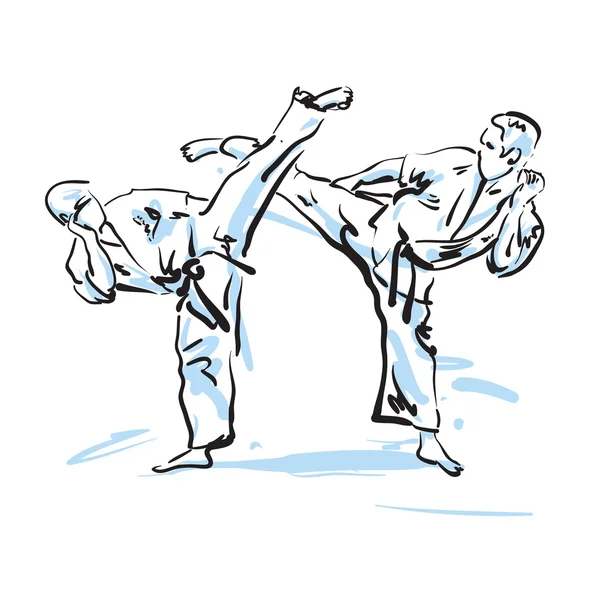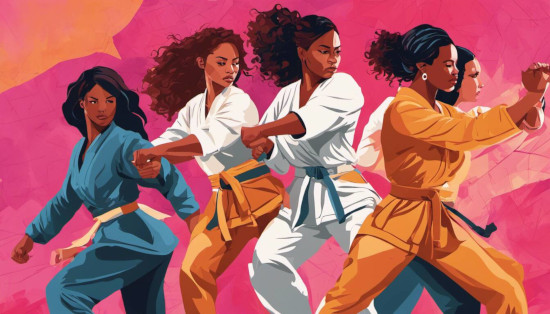Self-Defense Techniques for Personal Safety and Empowerment
In a world where unpredictability often lurks around the corner, mastering self-defence techniques becomes more than just a skill; it transforms into a philosophy of empowerment and resilience. Imagine walking down a dimly lit street, feeling confident in your ability to protect yourself if the need arises. That's the essence of self-defence — not just physical prowess, but the mental fortitude and strategic awareness to navigate any situation safely.
Defining Self-Defense: More Than Just Martial Arts
Self-defence isn't solely about martial arts or combat techniques; it's a holistic approach to personal safety. At its core, self-defence encompasses awareness, prevention, risk assessment, and, when necessary, physical techniques to neutralize threats. It's about equipping oneself with the tools and mindset to stay safe in various scenarios, from street altercations to cyber threats.
Key Aspects of Self-Defense
1. Awareness:
Before any physical altercation occurs, awareness acts as your first line of defence. Being attuned to your surroundings allows you to identify potential threats early on, giving you time to react appropriately. Simple habits like scanning your environment, avoiding distractions, and trusting your instincts can significantly enhance your safety.
2. Prevention:
Prevention involves proactive measures to minimize the likelihood of encountering dangerous situations. This includes avoiding risky areas, practising situational awareness, and setting boundaries in interpersonal interactions. By preemptively addressing potential threats, you reduce the need for physical confrontation.
3. Risk Assessment:
Understanding the level of risk in different situations is crucial for effective self-defence. It involves evaluating factors such as the number and demeanour of potential attackers, available escape routes, and the presence of weapons. By assessing risks accurately, you can make informed decisions about the appropriate response.
4. Physical Techniques:
While physical techniques are a component of self-defence, they should be viewed as a last resort. These techniques encompass a range of skills, from basic strikes and blocks to more advanced grappling and disarming manoeuvres. Training in martial arts or self-defence classes can provide the necessary skills and confidence to execute these techniques effectively.
The Relevance of Self-Defense in Today's World
In an increasingly interconnected society, the need for self-defence skills transcends physical encounters. Cyberbullying, identity theft, and online harassment are just as prevalent as physical violence, highlighting the importance of digital self-defence. Moreover, marginalized communities often face disproportionate risks, making self-defence training a vital tool for empowerment and protection.
Empowerment Through Self-Defense
Self-defence isn't just about defending oneself physically; it's about reclaiming power and agency. For individuals who have experienced trauma or oppression, mastering self-defence techniques can be liberating. It instils a sense of confidence and autonomy, allowing individuals to navigate the world without fear holding them back.
Consider the story of Sarah, a survivor of domestic abuse who found solace in martial arts. Through training, she not only learned to protect herself physically but also regained control over her body and mind. The dojo became her sanctuary, where she could channel her strength and resilience into something positive. Sarah's journey exemplifies the transformative power of self-defence as a tool for healing and empowerment.
Community Impact
Self-defence goes beyond individual empowerment; it has the potential to foster safer communities. By equipping individuals with the skills to protect themselves, we create a ripple effect of safety and solidarity. Community-based self-defence initiatives, such as free workshops or neighbourhood watch programs, promote collective resilience and mutual support.
Conclusion: Empowerment Through Preparedness
In a world fraught with uncertainties, self-defence offers a beacon of empowerment and resilience. It's not just about learning a set of techniques; it's about cultivating a mindset of awareness, prevention, and confidence. Whether you're walking home alone at night or navigating the complexities of the digital landscape, self-defence equips you with the tools to stay safe and assert your boundaries.
As we continue to explore the fascinating world of self-defence, let's remember that the journey towards personal safety and empowerment is ongoing. It requires dedication, education, and a willingness to confront our fears. So, let's embrace the power within us and embark on this journey together, one step at a time.





Comments
Post a Comment